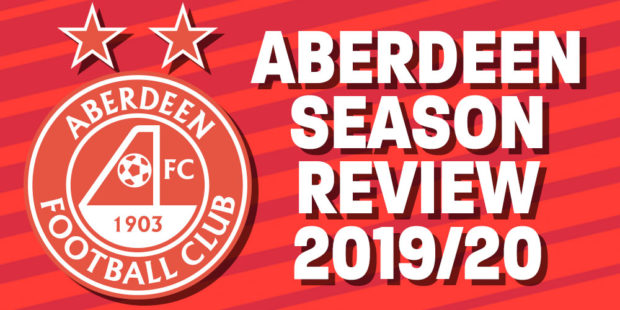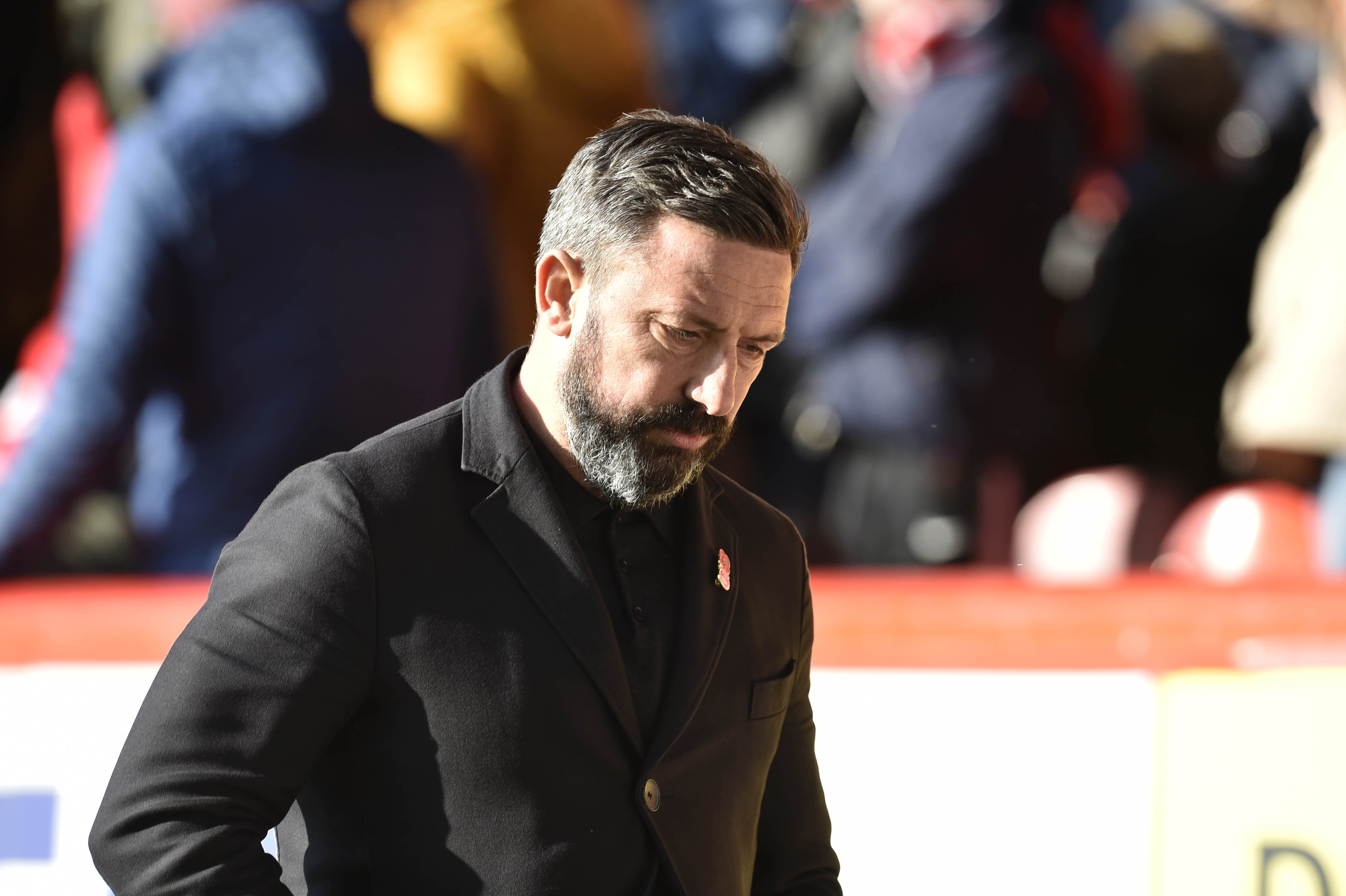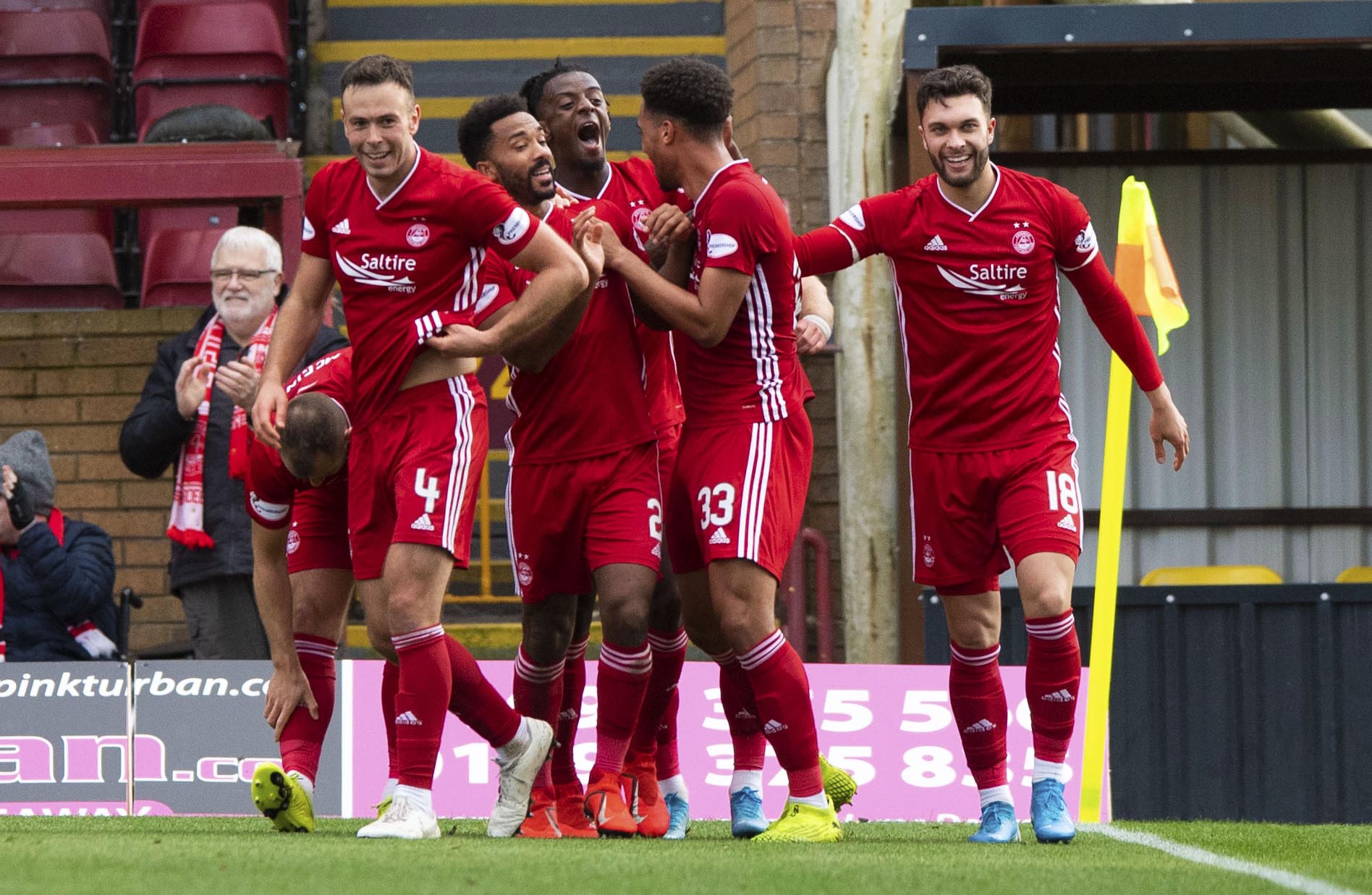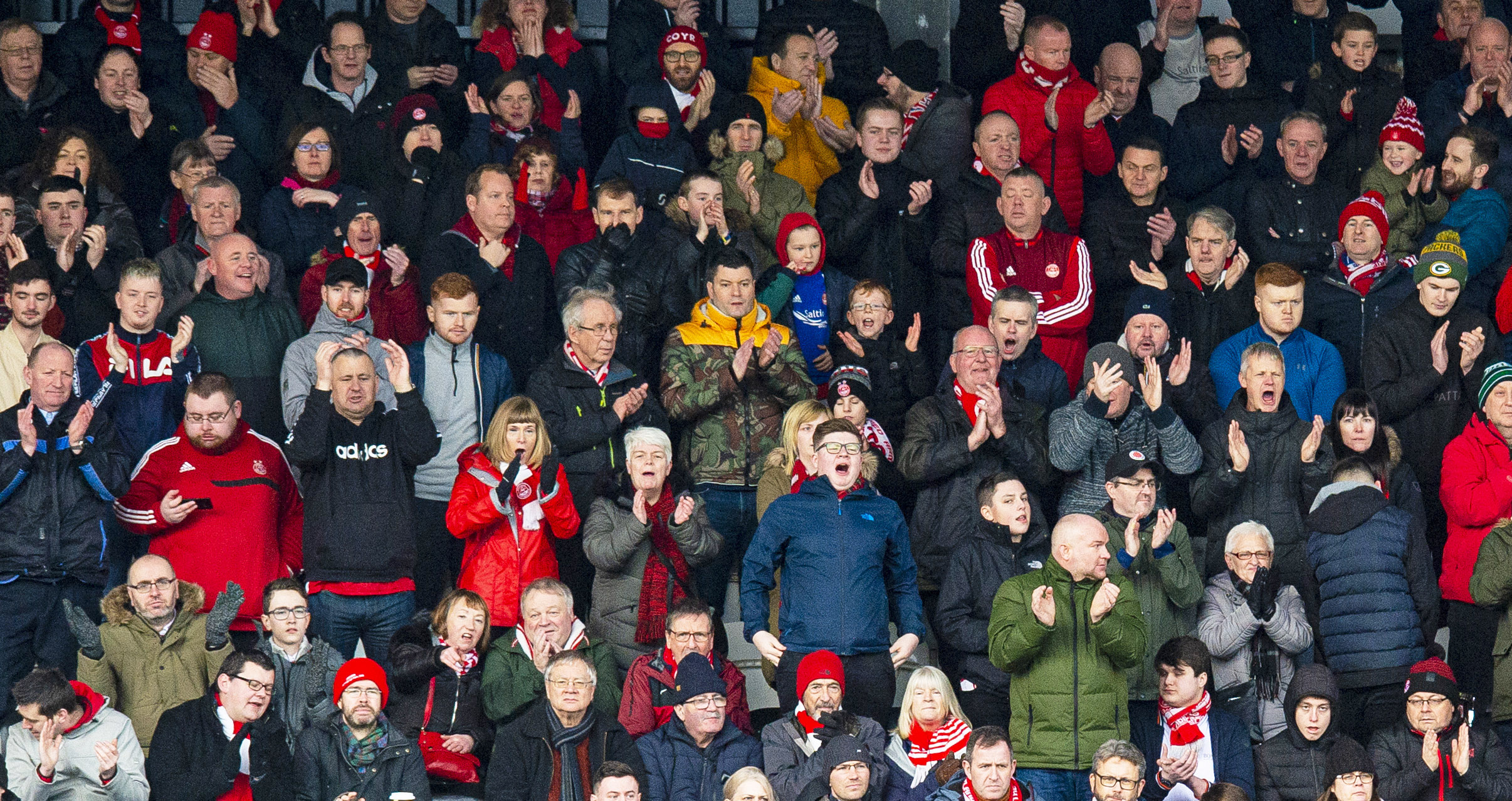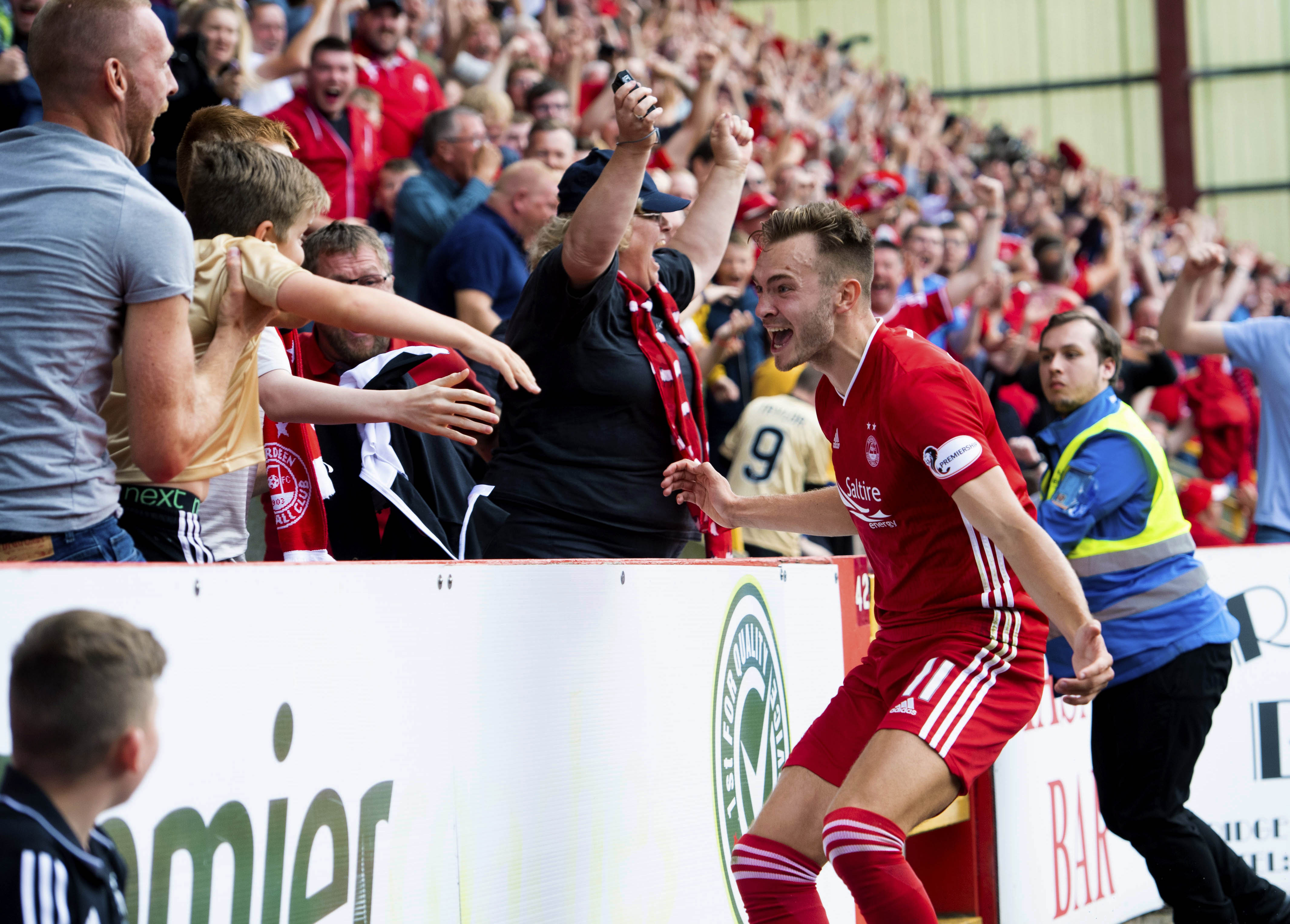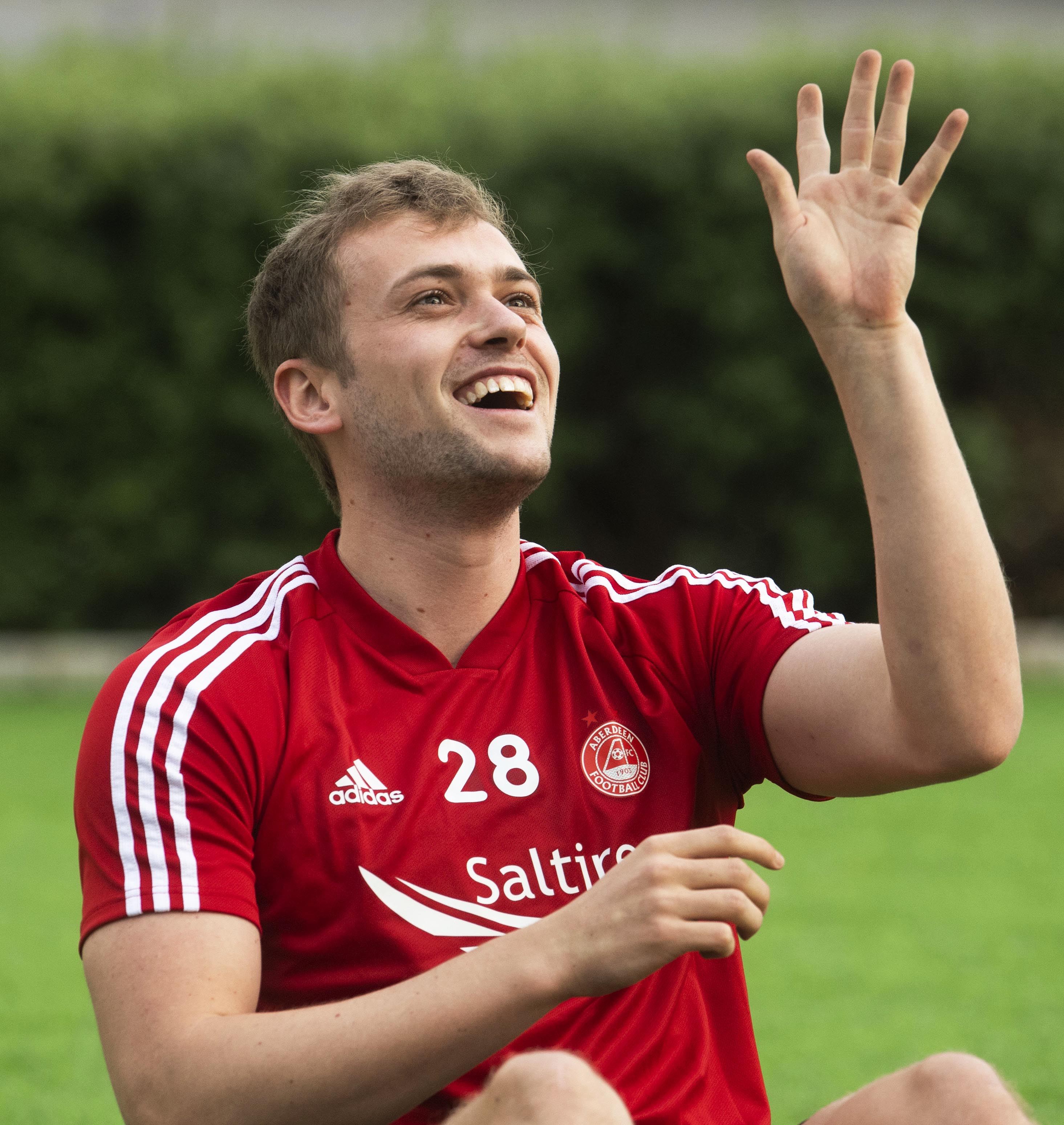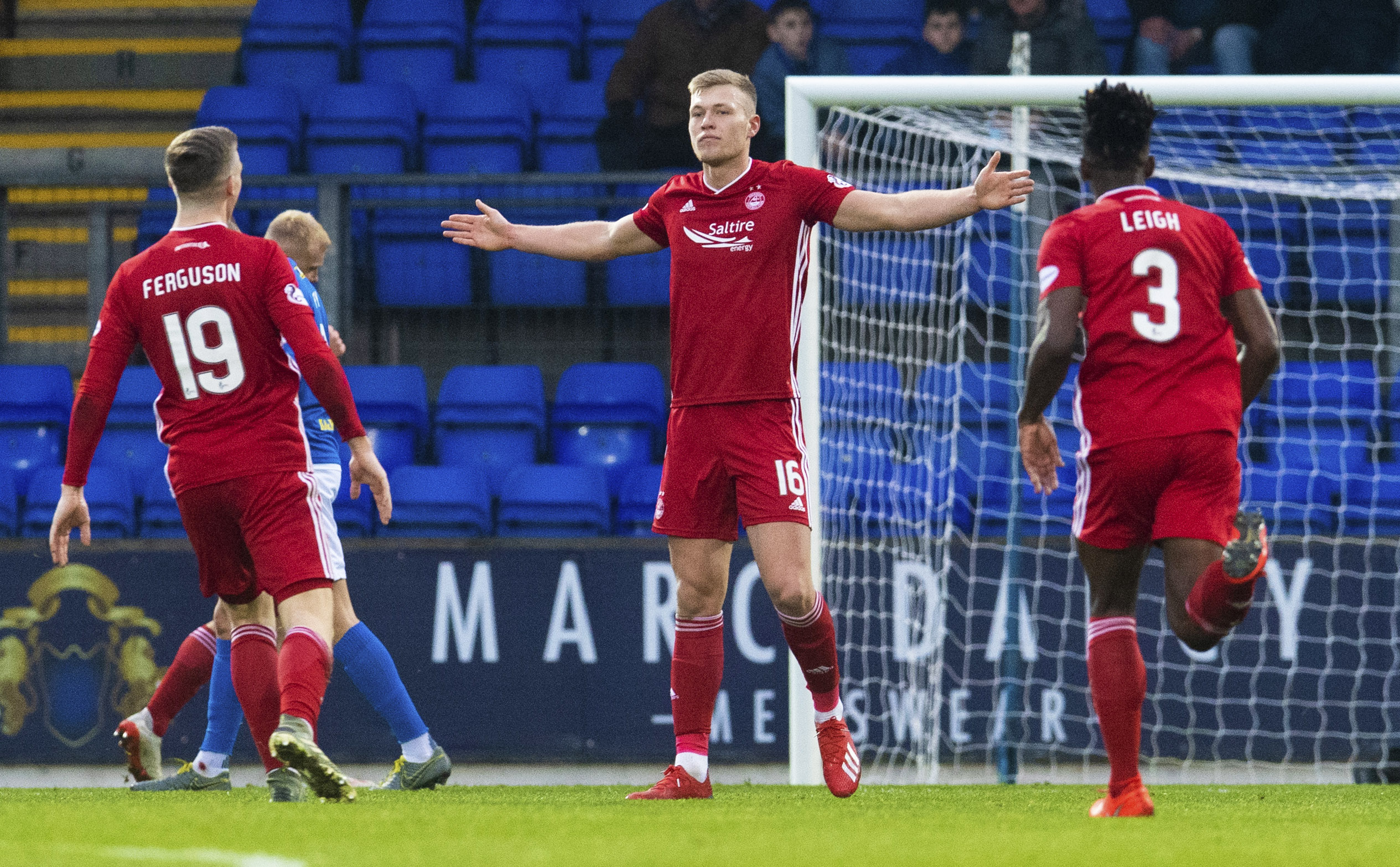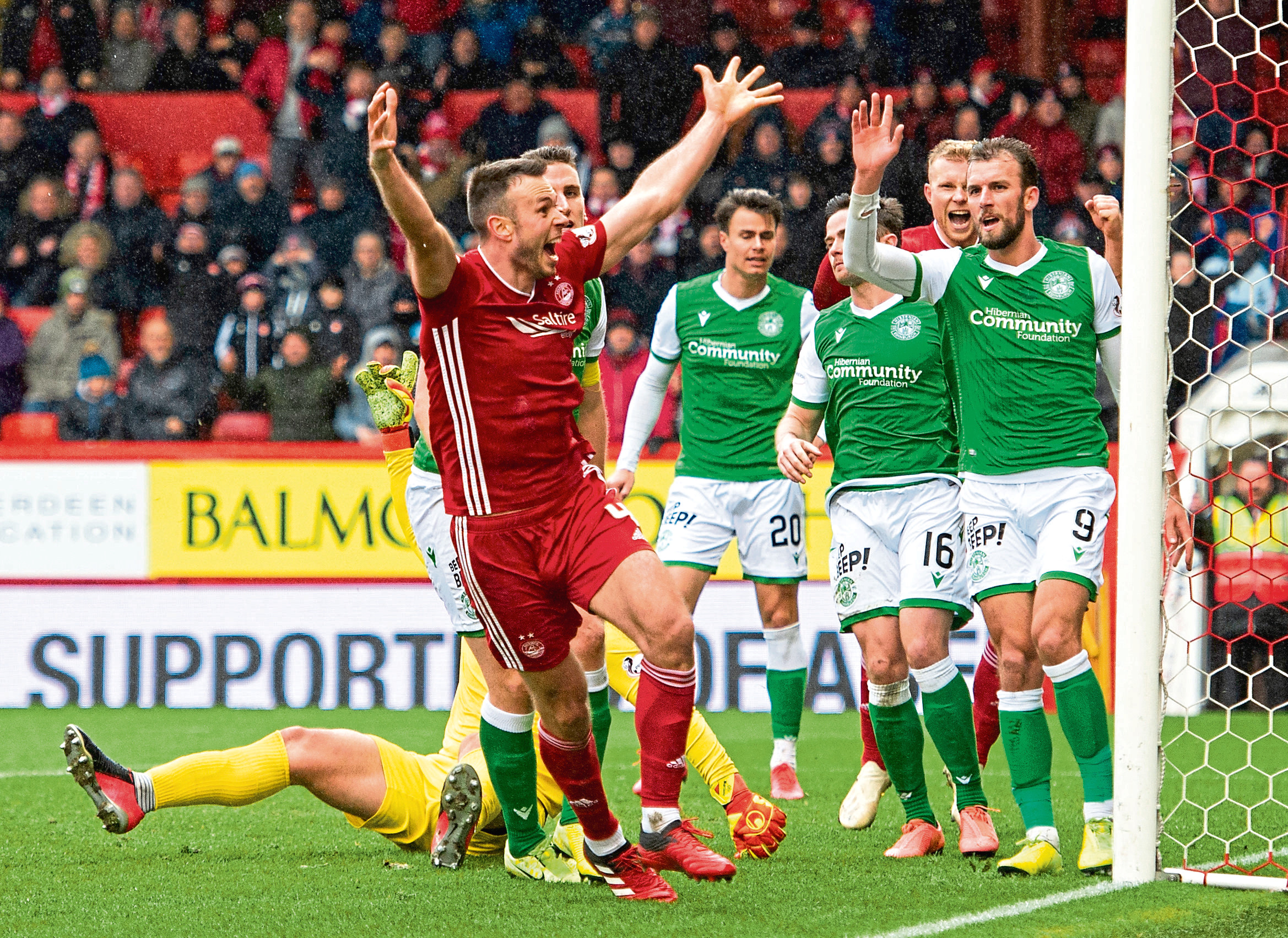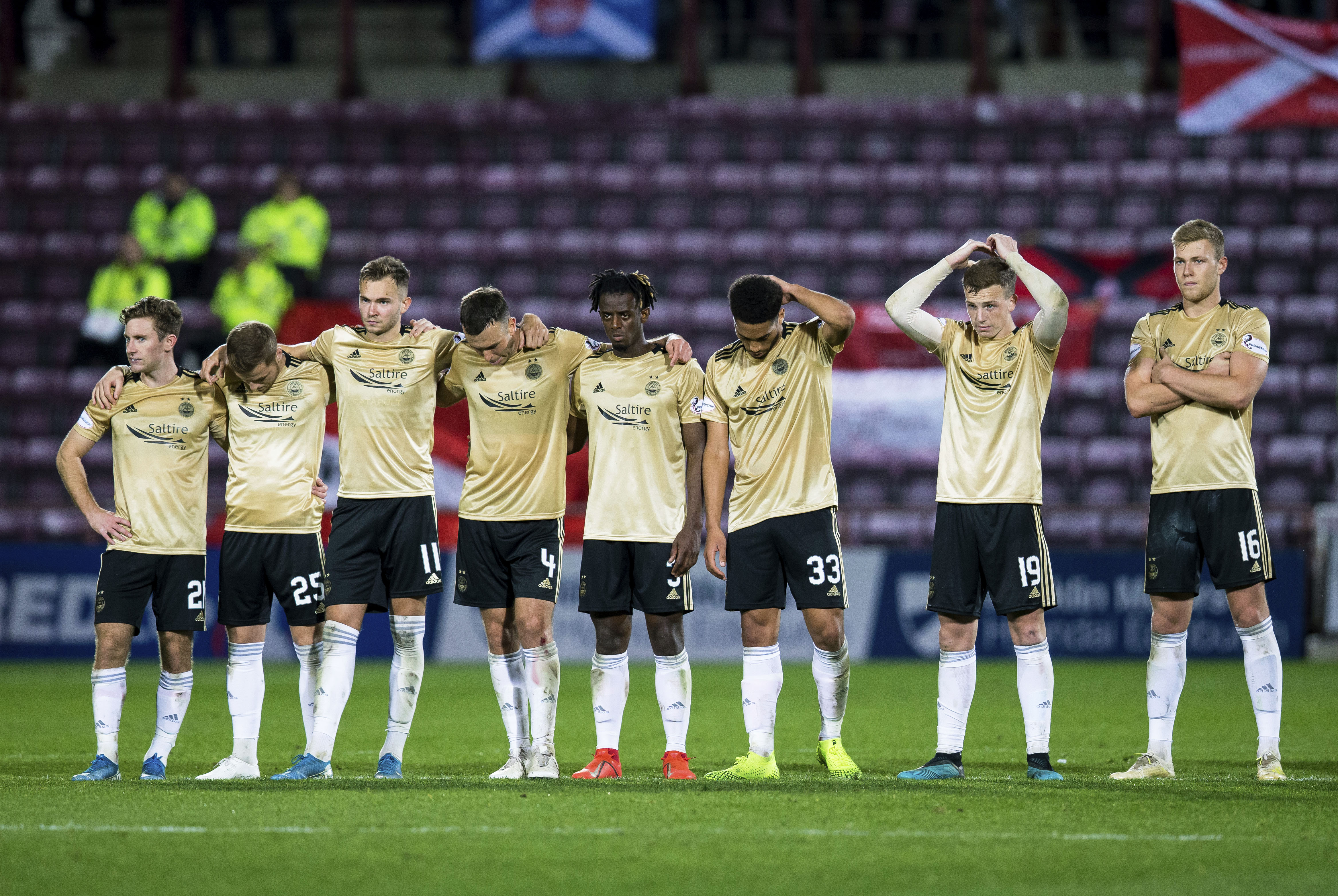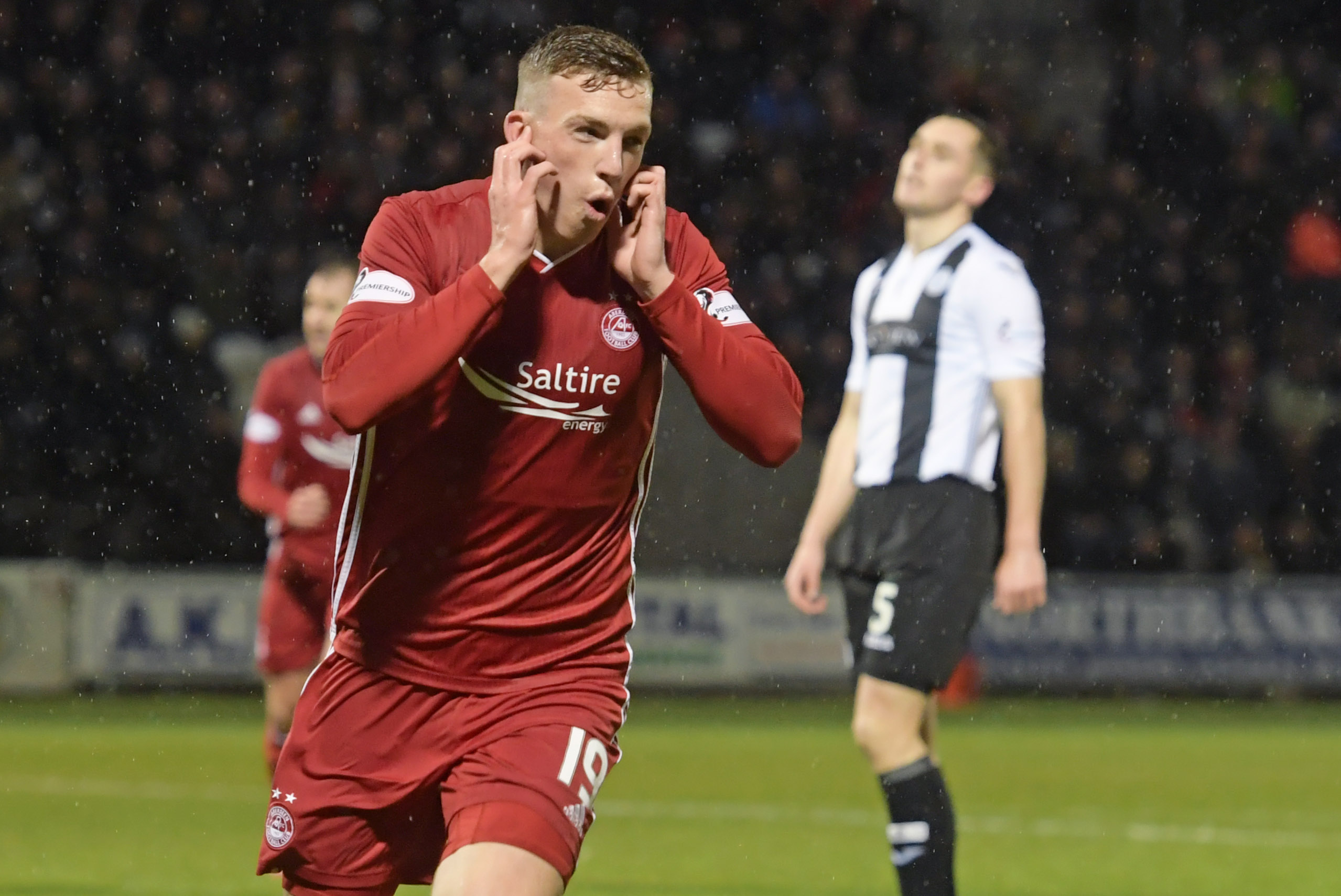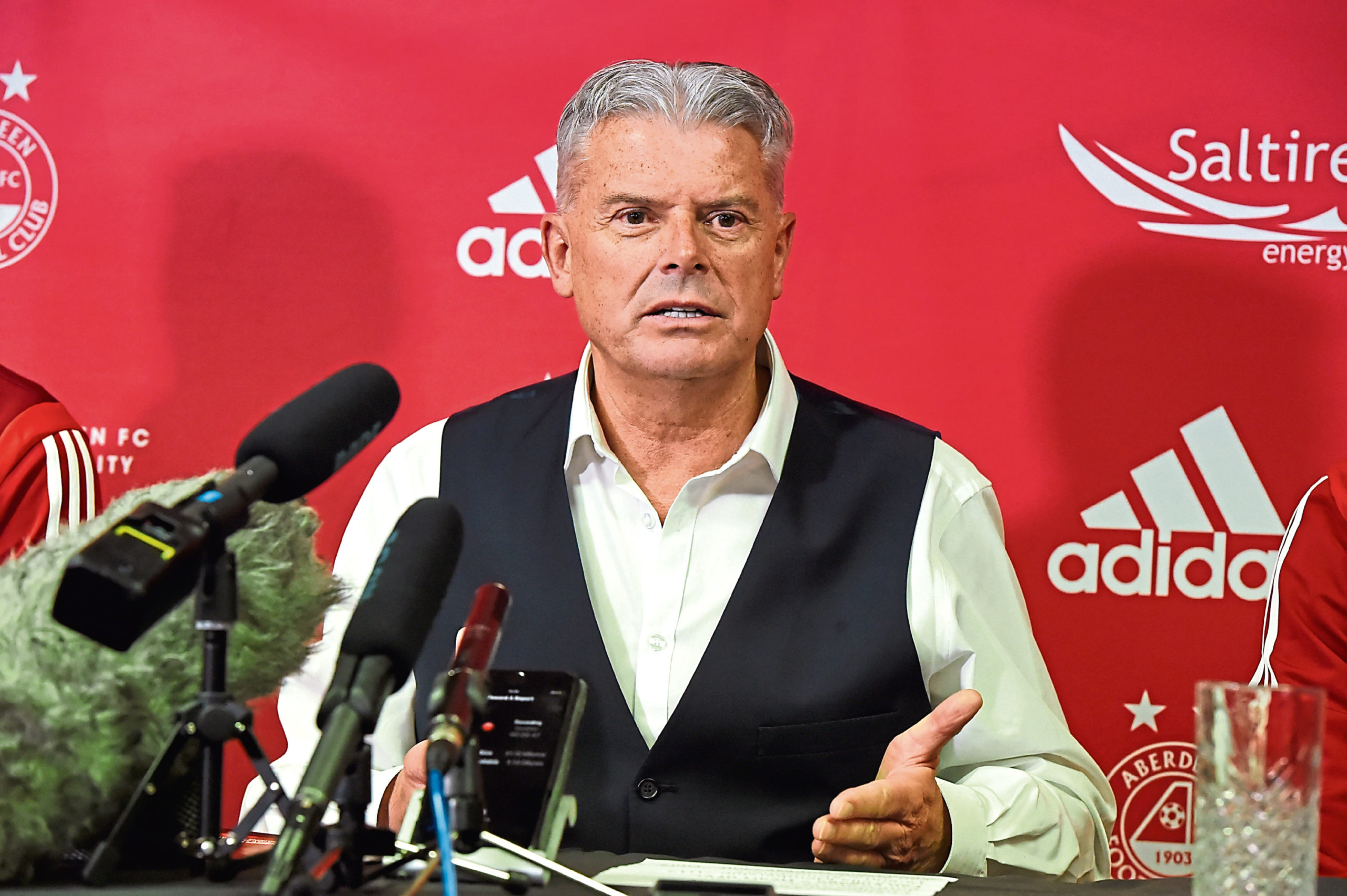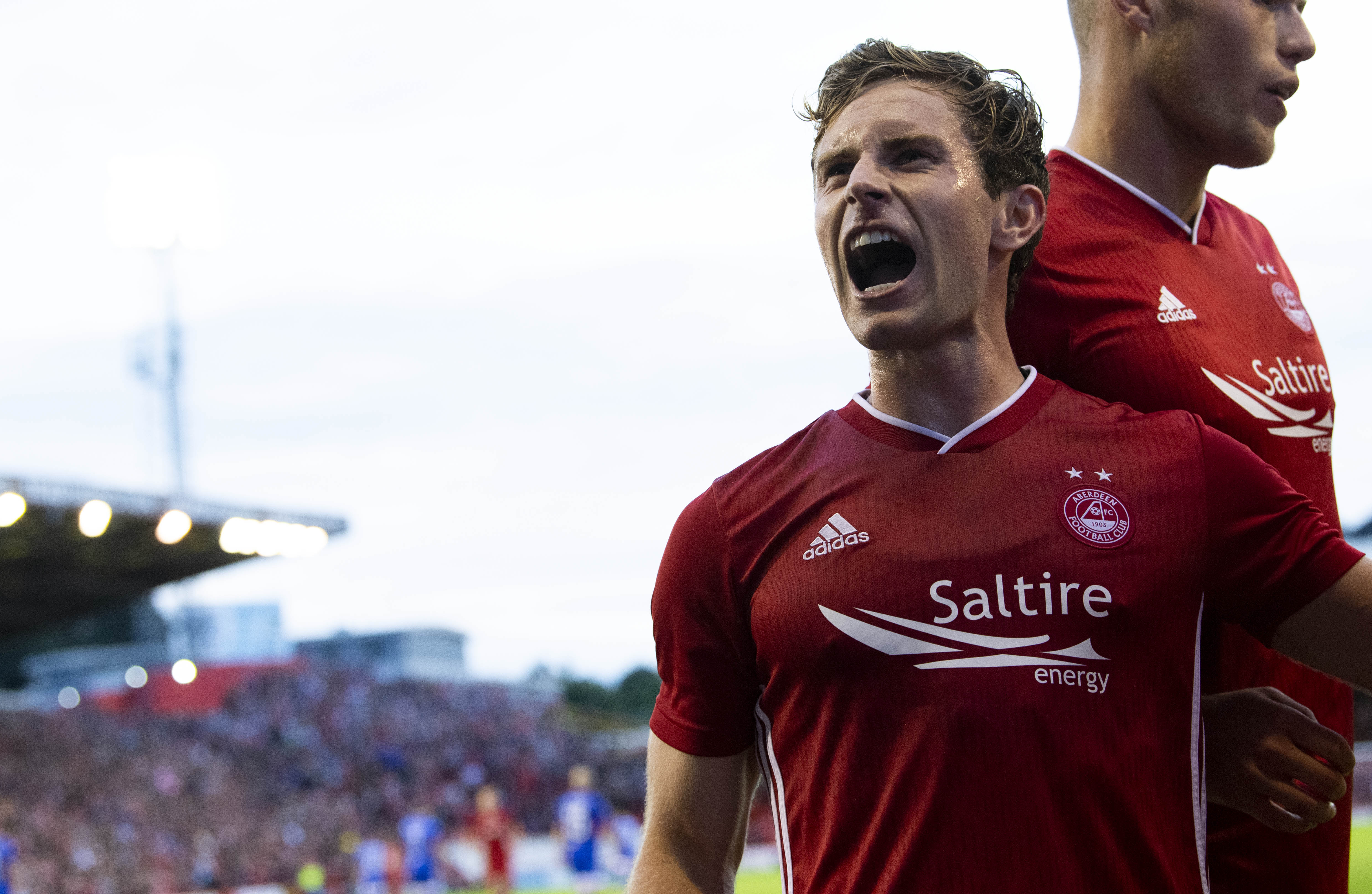It has ended in far from ideal circumstances – and while Derek McInnes wanted the season to be played to a conclusion, the Aberdeen manager may be satisfied that ultimately they will emerge from this campaign with another European place.
The fourth-placed Dons endured some difficult spells through the season, with struggles in front of goal and grumbles from the stands regarding their style of play.
The five games on the spin at the turn of the year where they failed to score a goal stands out, amid which was the goalless draw at St Mirren which prompted Dons fans to chant for McInnes to go.
There were high points – a 3-0 win away to Motherwell in October with a disjointed, reshuffled side, was one. Zak Vyner and Greg Leigh started in midfield at Fir Park, with injuries limiting McInnes’s options – in fact, summer engine room additions Craig Bryson and Funso Ojo both spent large parts of the campaign on the sidelines, although Ojo had reestablished himself in the team by the shutdown.
At Motherwell, Vyner got on the scoresheet himself in that convincing performance, which prompted the Dons to win four of the next six games. A 2-2 draw against Rangers, in which the Dons came from two goals down, was a game that highlighted the character within the squad.
But performances were far from fluid at times and some other signings did not make huge impacts in their first season.
Jon Gallagher, a loan signing from Atlanta United, stood out with his pace in a multitude of positions, but there were too many games where he was on the periphery of things.
Ryan Hedges was a peculiar one. There was some optimism about his signing and rightly so, given he’d come from a decent level in England and had international ambitions.
His early showings, particularly in Europe and the league opener against Hearts, were impressive and he looked to be the man to fill the void left by Gary Mackay-Steven.
However, he found himself out of the side for a good while and when the Dons were crying out for some creativity, many fans pointed to Hedges as being the man that ought to be given a chance.
There were hopes James Wilson could fulfil his potential with a permanent switch to Pittodrie but that fell flat, with a January exit to Salford City capping an unimpressive time in the north-east.
Sam Cosgrove enhanced his reputation further with 23 goals in all competitions, which had him linked to numerous English clubs throughout the campaign.
Because of his rapid emergence as their main striker, an over-reliance on him – subconscious or otherwise – burdened Aberdeen for a period as they struggled to find goals from elsewhere in the team.
Andy Considine was arguably their most consistent performer, though, which prompted calls for a belated Scotland call-up.
He found himself moved back inside to his natural centre-half position and shone, with injuries to Scott McKenna and Ash Taylor allowing him to show his importance to the Dons cause once more.
In the cup competitions they may be left with a feeling of what might have been.
They scraped through in extra-time against Dundee in the second round of the Betfred Cup and were eliminated by Hearts in the quarter-final on penalties.
Their first foray into the Scottish Cup was less-than-convincing, needing an 86th-minute penalty from Sam Cosgrove to take them past League 1 side Dumbarton at Pittodrie.
A 4-3 thriller against Kilmarnock and 2-0 win over St Mirren had put them into the semi-finals, where they were due to face Celtic before football’s shutdown.
They do have most of their squad under contract for next season, but opportunities to recruit quality in the summer may prove difficult. There is also no certainty as to what European competition will look like next season.
It was very much a stop-start campaign for the Dons that you cannot say really goes above being satisfactory. They will hope the continuity they have in their squad gives them a leg-up on their opponents next season, as and when Scottish football can restart.
New voice at the top is being heard
Arguably the biggest news this season for Aberdeen came off the park.
Stewart Milne’s announcement that he would stand down as chairman at the club’s AGM in December, to be replaced by Dave Cormack, has prompted a significant change in the way the club has been run.
Cormack is a more vocal and outspoken chairman than Milne and during his short time at the helm has certainly not held back.
The partnership with Atlanta United was the first big pay-off of Cormack’s premiership, with a tie-up between the two clubs seeing Atlanta president Darren Eales take a seat on the Dons board.
Cormack has helped bring US investor Tom Crotty on board and the investor group pitched in with a cash injection to help the Dons during the coronavirus-enforced lockdown.
He has championed the club’s grass-roots response during the last two months, which has seen outstanding work from the community trust delivering food and meals to where they are most needed.
The Atlanta-based businessman has not been shy in voicing his opinion on the SPFL’s handling of the ending of the season, backing an independent investigation into the process.
He also organised a meeting of Premiership clubs to discuss potential reconstruction, announcing top-flight clubs would not back it at this time before a proposal had been put forward.
His brand of management has gone down well with Dons supporters, who have embraced his openness and appreciated the level of communication.
